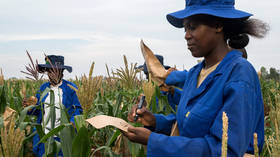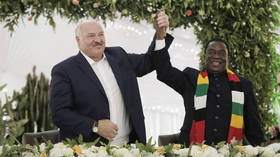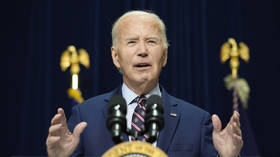African nation expects bumper harvest to propel economic growth

Economic growth in Zimbabwe could surpass expectations this year, a government official announced on Friday, adding that the country expects a bumper maize harvest.
The economy could grow 6%, higher than a previous forecast of 3.8%, due to a strong performance by the agriculture segment, Finance Minister Mthuli Ncube told an online briefing.
Zimbabwean officials announced earlier this week that it expected to harvest 58% more maize this year than in 2022, thanks to favorable weather and rains.
The minister also said the government hoped to ease power shortages by improving electricity generation at the country’s power plants.
Zimbabwe possesses abundant mineral and natural resources. Among the country’s main exports are gold, nickel, diamonds, and lithium, a vital resource for manufacturing smartphones, car batteries, and other rechargeable electronics. Mineral exports reportedly account for about 60% of Zimbabwe’s export earnings, while the mining sector comprises 16% of GDP.
Economic growth in Zimbabwe has been volatile over the past decade. The country’s GDP grew by 8.5% in 2021, although growth is estimated to have slowed to 3.4% in 2022. High inflation, multiple exchange rates, low investment, and unsustainable debt levels have hampered economic development.
The country's annual consumer price inflation stood at 87.6% in March 2023, down from 92.3% in February. The country’s central bank reduced the benchmark interest rate from 200% per annum to 150% in February, although this remains the highest in the world. The extreme poverty in the country reached its peak in 2020 but has declined since, according to the World Bank.
For more stories on economy & finance visit RT's business section













